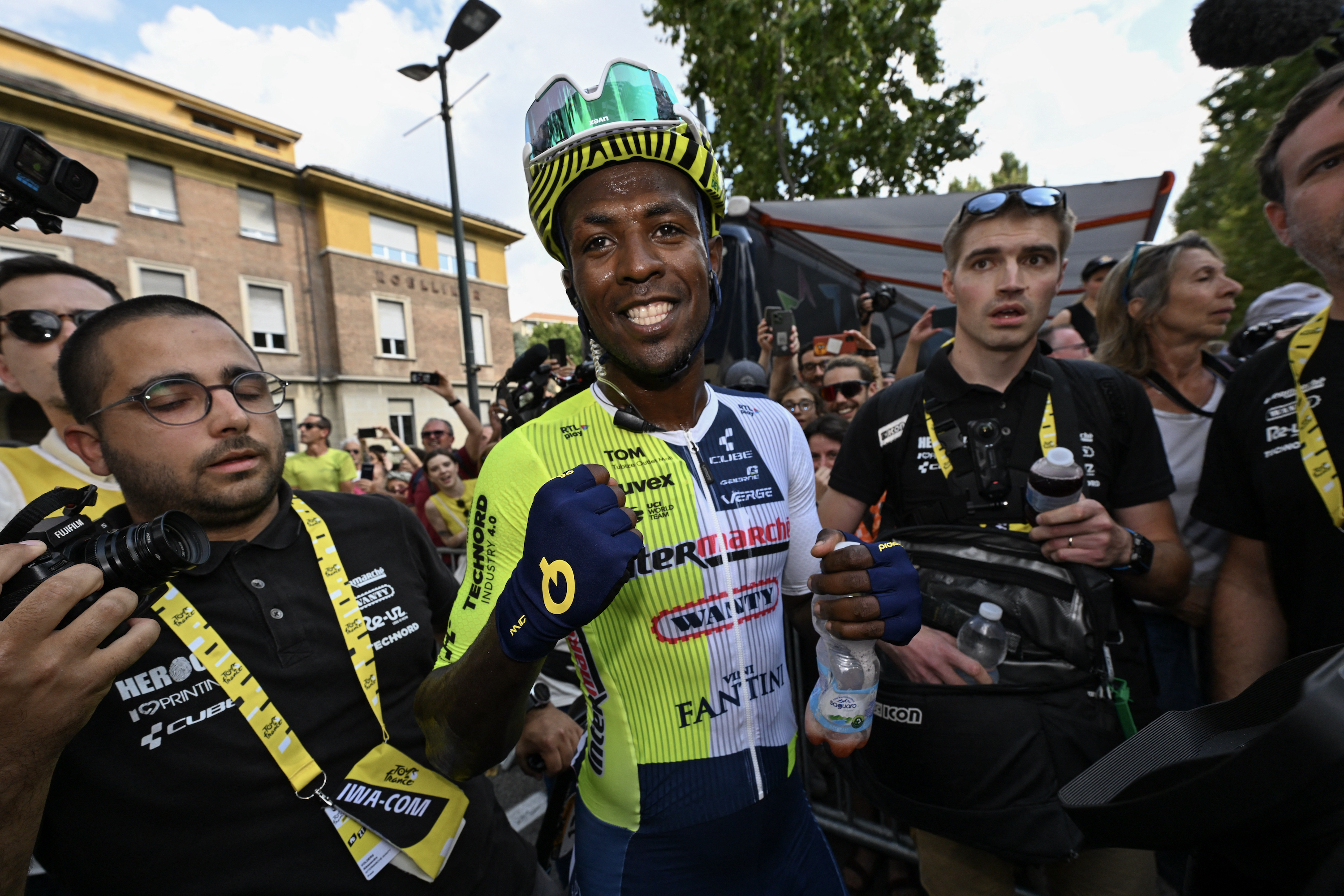
It will not have escaped your attention that Biniam Girmay made history at the Tour de France on Monday’s stage three, by becoming the first black African to ever win a stage of the French Grand Tour. He was also the first Eritrean, and the first Intermarché-Wanty rider, to achieve the feat. The 24-year-old has a habit of making history.
He did the same at the Giro d’Italia in 2022, when he became the first black African to win a stage of that race, and of any Grand Tour. A couple of months earlier that year, he’d become the first black African to win a Classic, at Gent-Wevelgem. As I said, he has a track record as a history maker.
The outpouring of pure joy at the victory was huge, and well deserved. It should be, it could be, a watershed moment for the incredibly white, and still Europe-centric sport of cycling. Girmay himself, already a superstar, will be elevated to a whole new level, an inspiration for an entire continent.
On social media after the momentous win, Girmay posted: “Let me open the door”.
This is noble, magnanimous, but he can not do it alone. Cycling cannot relax now, pat itself on the back, and think “job done”. There is so much work to be done to make the sport more representative, more open to people from backgrounds like Girmay, and others from non-traditional cycling countries.
The Eritrean might be the first black African to win a Tour de France stage, but he is also the only black rider in the whole peloton of 176, and is one of only three Africans - Ryan Gibbons and Louis Meintjes are both white South Africans.
This is nothing exceptional either. Of 524 male WorldTour riders, there are just five black Africans: Henok Mulubrhan (Astana Qazaqstan), Amanuel Ghebreigzabhier and Natnael Tesfatsion (both Lidl-Trek), Welay Hagos Berhe (Jayco AlUla), and Girmay. There are other non-white riders, and other non-Europeans, but white Europeans are still an overwhelming majority.
The barriers to this number increasing are enormous. As we have covered, visa issues are a big problem, with many young African cyclists denied entry to Europe because of strict controls on immigration and foreign nationals working there. It is almost impossible for young boys and girls from countries like Eritrea, Rwanda and Ethiopia to come and train in Europe, let alone race there.
The increase of data in cycling, in some ways, has meant that there are more avenues for riders to come into the sport in non-traditional ways, like the Zwift Academy. However, most of this requires access to training platforms and a good, regular internet connection, which is out of reach for many people in developing countries across the globe, still. We might all be able to hop onto our Wi-Fi or mobile data whenever we like, but not all are so lucky. Girmay has spoken before of having to go to an internet cafe and use a dodgy connection to chat to his coach and use Training Peaks; this is an entry-level barrier.
Cycling is an incredibly expensive sport to get into, with or without the internet and training platforms. This is why it remains such a middle-class venture in Europe, let alone in the rest of the world. Think about your bike, your computer, your kit, your nutrition, and also the availability of free time to train. Add in all the other complications, and it’s a mountain.
The sport continues to be overwhelmingly white, and rooted in the culture of its European homelands. We can all celebrate the significance of Monday, but we should not rest on our laurels, think that the job is done now.
Girmay’s victory was a historic moment, but his rise to the top of cycling is also miraculous. He might have opened the door, but it is only ajar. A lot still needs to be done to force it open for anyone else to follow.
This piece is part of The Leadout, the offering of newsletters from Cycling Weekly and Cyclingnews. To get this in your inbox, subscribe here.
If you want to get in touch with Adam, email adam.becket@futurenet.com.







